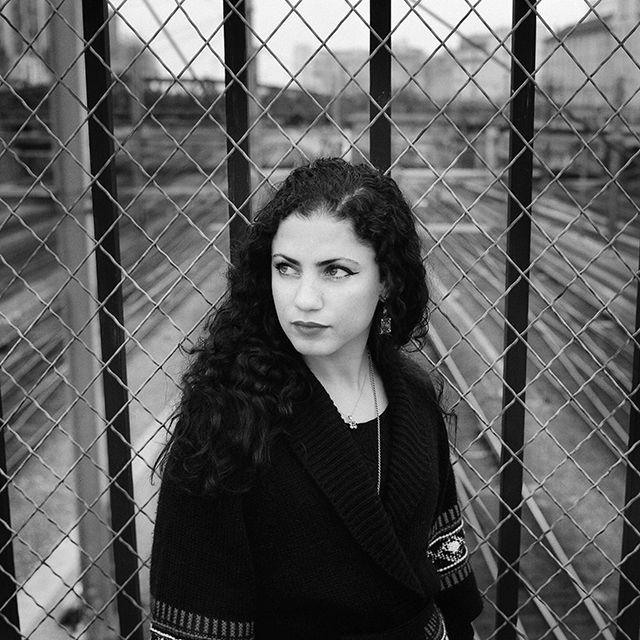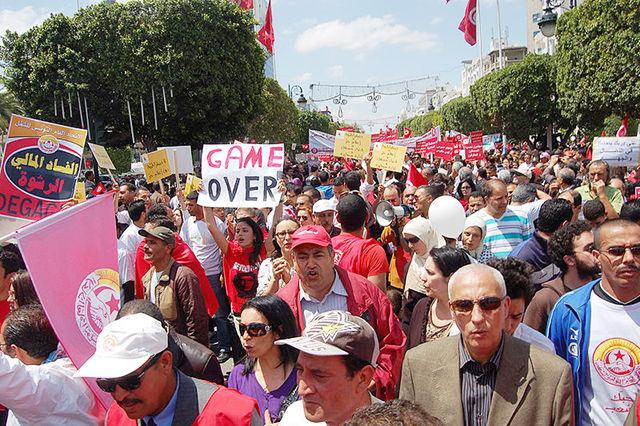Three weeks after the Norwegian Nobel Committee awarded the Tunisian National Dialogue Quartet, which comprises four factions of Tunisian civil society, including lawyers, business, labor and human rights, the woman whose music became the anthem and symbol for the struggle to obtain democracy will perform at NC State.
Emel Mathlouthi, whose song “Kelmti Horra,” which is Arabic for “My word is free,” became the anthem of Tunisian protesters beginning in December 2010, will perform as part of the NC State LIVE performance series Thursday at 8 p.m. in the Stewart Theatre in Talley Student Union.
In late 2010 and early 2011, the protests set off the Arab Spring in the region and the Jasmine Revolution in Tunisia and resulted in the ousting of then president Zine El Abidine Ben Ali. However, in 2014 Tunisia held its first free elections and Tunisians elected the country’s first freely elected president.
Mathlouthi, 33, said the progress that the Nobel committee recognized goes beyond the four factions that make up the quartet, and the Nobel Prize recognizes the entirety of the Tunisian people.
“It’s just great that there is something that is symbolic that gives a lot of hope to the whole world that there is a country working with all of its civil societies in trying to work for a brighter future,” Mathlouthi said.
Sharon Moore, the director of NC State LIVE, was part of the team that invited Mathlouthi to perform at the university.
“To be honest with you, I have always been drawn to world music, and what really sold me is her passion and sincerity,” Moore said. “Her intensity was just electric when I saw her.”
Mathlouthi’s music touches all genres and mixes traditional Islamic music with jazz, rock, metal and electronic influences.
“Her music speaks to you emotionally,” Moore said. “It’s very energizing, and it’s great dance music. She just has an energy that you can’t resist. It’s very infectious.”
Zakarya Masmoudi, a Tunisian American and a junior studying business administration at NC State, said that Mathlouthi’s music had an incredible power to bring people together and that her song “Kelmti Horra” in particular spoke volumes about the Tunisian people.
“I don’t know a single Tunisian that isn’t proud of that song who hears it,” Masmoudi said. “It brings this feeling of ‘Wow, we’ve accomplished so much.’”
For the last few decades, Masmoudi’s family has been involved in the struggle to bring democracy to Tunisia.
Masmoudi’s father, Radwan Masmoudi, is the founder and president of the Center of the Study of Islam and Democracy, a Washington D.C. based nonprofit organization that is dedicated to “promoting freedom, democracy and good governance in the Arab/Muslim world.”
In addition to Masmoudi’s heritage, because of his father’s work, Mathlouthi’s visit to NC State comes at an extremely symbolic moment for him in the history of the Tunisian struggle to build a democracy and bring recognition to the country.
“There’s a certain level of animosity toward Arabs and Muslims, because of everything reported in the media,” Zakarya said. “I want my fellow students to understand and know that there are millions and millions of Arabs and Muslims fighting the good fight. That’s why I am particularly proud of Tunisia. Through so much adversity, and we still have a long way to go, but we’re building a foundation for a successful democracy.”
Mathlouthi said she hopes students and audience members take away more than just an appreciation for her music after her performance on Thursday. She hopes that they will also learn a little more about the Tunisian culture and people.
“It’s a very dynamic place, so I really hope that we could go for a stronger democracy and completely awake on any kind of extremism because that isn’t Tunisia,” Mathlouthi said. “That’s not the country that I grew up in, and that my parents grew up in. With the Nobel Prize, that definitely gives us a big, big push. I consider the Nobel Prize as being given to the Tunisian people and many, many people consider this as well. So, it gives us a really big breath to work much more.”
The Norwegian Nobel Committee awarded the Tunisian Quartet the Nobel Peace Prize on Oct. 9. The committee recognized the efforts of different factions of the country’s civil society to build a peaceful coalition.














